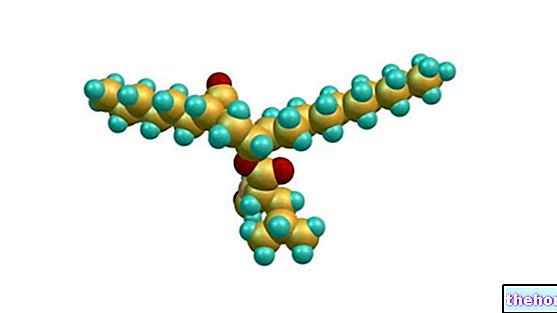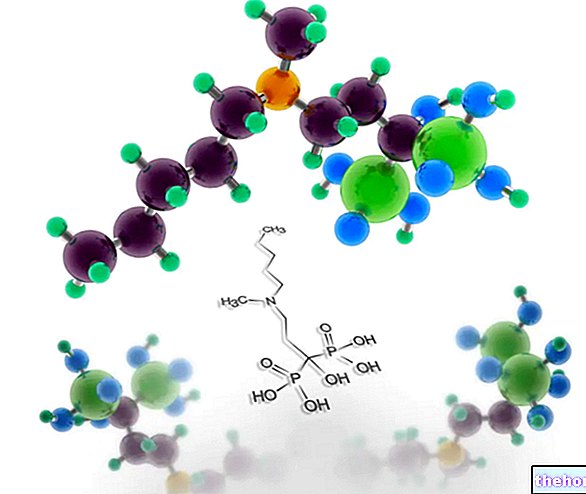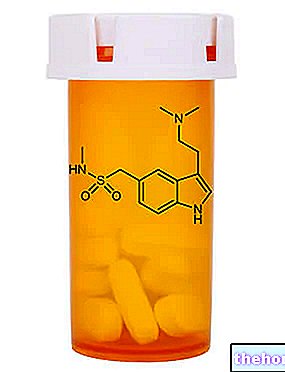RIFACOL ® is a rifaximin-based drug
THERAPEUTIC GROUP: Antibiotic - Intestinal antimicrobial

Indications RIFACOL ® Rifaximin
RIFACOL ® is an antibiotic used in the treatment of bacterial infections of the intestinal tract caused by Gram + and Gram - bacteria, responsible for acute diarrhea such as summer or traveler's.
The antibiotic action is also effective in the prevention of pre and post-operative infectious pathologies and in the rebalancing of the intestinal flora during irritable bowel syndrome and similar diseases.
Rifaximin also finds application as an adjuvant in the therapy of hyperammonemia.
Mechanism of action RIFACOL ® Rifaximin
RIFACOL ® is a drug based on rifaximin, an antibiotic derived from rifamycin, with which it shares the same mechanism of action despite the different pharmacokinetic properties.
More precisely, the bactericidal action induced by this antibiotic is expressed through the inhibition of bacterial RNA polymerase, an enzyme involved in the transcription of DNA, therefore in its survival and replication, while the pharmacokinetic characteristics make it particularly suitable for the treatment of intestinal affections.
In fact, being only minimally absorbed from the gastrointestinal tract, an estimated amount of around 1% of the total dose taken and excreted via the kidney, it reaches the intestinal lumen at such concentrations as to perform an impressive antibacterial action.
Studies carried out and clinical efficacy
1. RIFAXIMINE AND IRRITABLE COLON SYNDROME
N Engl J Med. 2011 Jan 6; 364: 22-32.
Rifaximin therapy for patients with irritable bowel syndrome without constipation.
Pimentel M, Lembo A, Chey WD, Zakko S, Ringel Y, Yu J, Mareya SM, Shaw AL, Bortey E, Forbes WP; TARGET Study Group.
The abnormal growth of intestinal bacterial flora is often associated with the presence of irritable bowel syndrome. In these patients, treatment with rifaximin for two weeks has been shown to significantly reduce swelling and abdominal pain, also significantly improving the consistency of stool. .
2. RIFAXIMINA AND HEPATIC ENCEPHALOPATHY
J Hepatol. 2010 Nov; 53: 849-55. Epub 2010 Jul 17.
Role of small intestinal bacterial overgrowth and delayed gastrointestinal transit time in cirrhotic patients with minimal hepatic encephalopathy.
Gupta A, Dhiman RK, Kumari S, Rana S, Agarwal R, Duseja A, Chawla Y.
Hepatic encephalopathy is a complex pathology characterized, among other things, by the presence of hyperammonemia, which significantly disturbs normal brain function. In the perspective of the prevention and therapy of this pathological condition, the reduction of the production of ammonium metabolites by the intestine represents a possible approach. More precisely, the action of rifaximin in inhibiting intestinal bacterial growth could be important in reducing the production of these metabolites which contribute to the worsening of clinical symptoms.
3. RIFAXIMINA AND DIARREA OF THE TRAVELER
J Travel Med. 2010 Mar-Apr; 17: 111-7.
Prevention of travelers "diarrhea with rifaximin in US travelers to Mexico.
Martinez-Sandoval F, Ericsson CD, Jiang ZD, Okhuysen PC, Romero JH, Hernandez N, Forbes WP, Shaw A, Bortey E, DuPont HL.
Traveler's diarrhea is a form of acute diarrhea, associated in most cases with severe bacterial infections. In this study, prophylaxis with 600 mg of rifaximin per day for 14 days was shown to be effective in reducing the risk of diarrhea by 48% without particularly significant side effects.
Method of use and dosage
RIFACOL ® 200 mg coated tablets of rafaximin or granules for oral suspension 2gr of rifaximin per 100 ml:
in the treatment of acute diarrhea sustained by microorganisms, the most used dosage is that of a 200 mg tablet of rifaximin every 6 hours, in the pre and post-operative treatment it is usually preferred to take 2 tablets of 200 mg every 12 hours while in hyperammonemia, 400 mg of antibiotic is also administered every 8 hours.
The aforesaid dosage may be subject to even significant variations, especially in pediatric age, decided by the doctor after a "careful physio-pathological evaluation of the patient.
In any case, the therapy should be continued for at least 7 days.
RIFACOL ® Rifaximin warnings
Administration of RIFACOL ® in patients with intestinal lesions may be associated with the appearance of reddish urine, due to the presence of the rifaximin metabolites. In fact, in these conditions the systemic absorption could increase significantly and inevitably be accompanied by an increased renal excretion of the active principle.
Prolonged use of rifaximin, especially when not supported by an adequate therapeutic indication, could determine the appearance of resistant bacterial strains, for which it would be necessary to replace the therapy with RIFACOL ® with a more adequate one.
The presence of sucrose in the formulation in granules for oral suspension could cause the appearance of side effects in patients with fructose intolerance and glucose / galactose malabsorption.
Rifaximin therapy has often been associated with the onset of vertigo and dizziness, so it would be important to check your perceptual state before driving a car or using dangerous machinery.
PREGNANCY AND BREASTFEEDING
Studies in the literature do not currently allow to accurately establish the safety profile of RIFACOL ® when taken during pregnancy, for the health of the unborn child.
Consequently, the intake of rifaximin during pregnancy and during the lactation period should be guaranteed only in case of real need and under strict medical supervision.
Interactions
Given the low systemic absorption profile of rifaximin, interactions with other active ingredients are very rare and of little significance.
Contraindications RIFACOL ® Rifaximin
RIFACOL ® is contraindicated in patients with known hypersensitivity to the active ingredient or to similar compounds, or in patients with intestinal obstructions and lesions.
Undesirable Effects - Side Effects
Rifaximin therapy was found to be very well tolerated and without clinically significant side effects.
The most common adverse reactions documented dizziness, headache, diarrhea, constipation, nausea, vomiting, abdominal pain and orthicoid-like skin reactions.
Note
RIFACOL ® is a drug that can be sold under medical prescription.
The information on RIFACOL ® Rifaximina published on this page may be out of date or incomplete. For a correct use of this information, see the Disclaimer and useful information page.























-nelle-carni-di-maiale.jpg)




